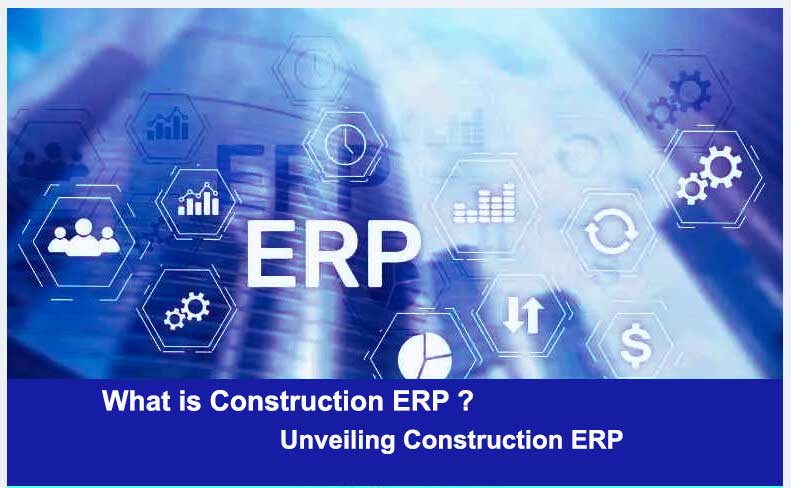In the construction industry, efficient project management, streamlined operations, and effective resource allocation are crucial for success. Construction Enterprise Resource Planning (ERP) software emerges as a key tool to address these needs.

This article explores the features, benefits, and significance of Construction ERP in the realm of construction project management.
Unveiling Construction ERP
Streamlining Construction Operations
Construction ERP is a specialized software solution tailored to meet the unique challenges of the construction industry. It integrates various aspects of project management, financials, procurement, and resource planning into a centralized system.
Holistic Project Management
Construction ERP provides a holistic approach to project management, enabling construction firms to manage projects efficiently from inception to completion.
Key Features of Construction ERP
Project Cost Management
Construction ERP allows for meticulous project cost management, tracking expenses, budgets, and ensuring financial visibility throughout the project lifecycle.
Resource Planning and Allocation
Efficient resource planning is a cornerstone of Construction ERP, aiding in the allocation of manpower, equipment, and materials to ensure optimal utilization.
Subcontractor Management
Construction projects often involve multiple subcontractors. Construction ERP facilitates seamless subcontractor management, ensuring coordination and timely project delivery.
Document Management
Document management is critical in construction projects. Construction ERP centralizes document storage, ensuring easy access, version control, and collaboration.
The Benefits of Construction ERP
Enhanced Project Visibility
Construction ERP provides real-time visibility into project progress, costs, and resource utilization, empowering stakeholders to make informed decisions.
Improved Collaboration
Effective collaboration is facilitated through Construction ERP, as teams can access project data, communicate, and share information within a centralized platform.
Compliance and Risk Management
Construction ERP helps manage compliance with industry regulations and mitigates risks by providing tools for tracking and addressing potential issues.
Increased Efficiency and Productivity
By streamlining processes and automating routine tasks, Construction ERP contributes to increased efficiency and productivity in construction projects.
Implementing Construction ERP
Needs Assessment
Understanding the specific needs of the construction firm is crucial before implementing Construction ERP. This assessment ensures that the chosen solution aligns with the company’s goals.
Vendor Selection
Selecting a reputable Construction ERP vendor is pivotal. Consider factors such as industry experience, support services, and the scalability of the ERP solution.
Training and Adoption
Comprehensive training programs should be implemented to ensure that all stakeholders, from project managers to on-site staff, are proficient in using Construction ERP.
Conclusion
Construction ERP serves as a cornerstone for success in the construction industry, offering a tailored solution for efficient project management and resource allocation. From project cost management to document control, the features of Construction ERP contribute to enhanced visibility, collaboration, and overall productivity. As the construction industry continues to evolve, embracing Construction ERP becomes essential for firms aiming to build success, one project at a time.